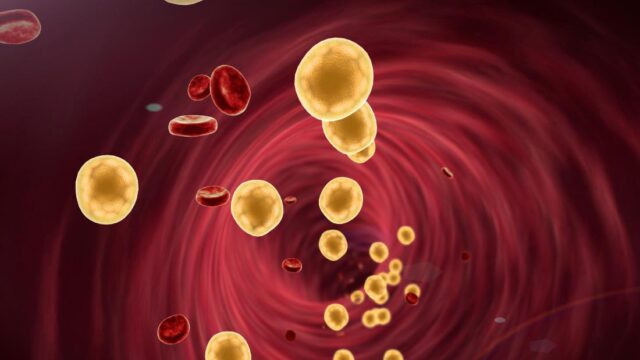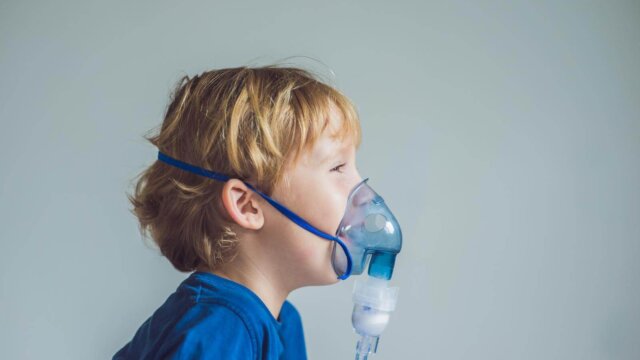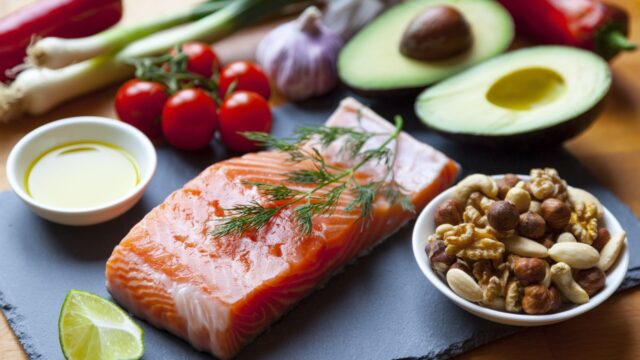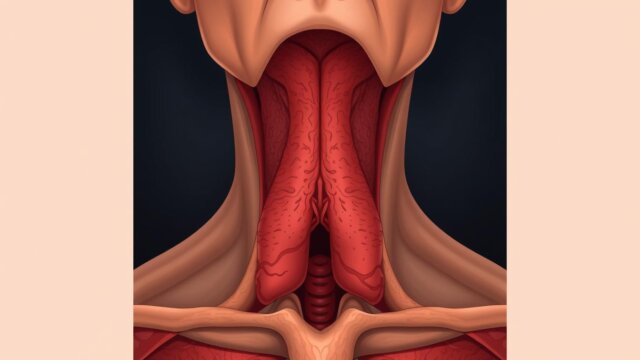FTC disclaimer: This post may contains affiliate links and we will be compensated if you click on a link and make a purchase.
Cardiovascular disease is the top cause of death in the U.S., taking over 600,000 lives yearly. You can lower your risk of heart attacks and strokes by managing your cholesterol. Just a few simple changes in your life can help you control your cholesterol and boost your heart health.
Key Takeaways
- The American Heart Association suggests eating more fish, poultry, and plants and less red and processed meats.
- Choosing lean or extra-lean ground meat with no more than 15% fat can help lower cholesterol.
- Eating at least 8 ounces of fish weekly can cut down the risk of heart failure, coronary heart disease, and stroke.
- Switching to low-fat or fat-free milk in recipes can lower dairy fat intake.
- Whole grains like brown rice and whole grain pasta can boost fiber intake for better heart health.
Understanding Cholesterol: The Good, the Bad, and the Ugly
Cholesterol is a key molecule in our health. But, having too much of the wrong kind can cause big problems. Let’s look at the different types of cholesterol and how they affect your heart.
HDL: The Good Cholesterol
High-density lipoprotein (HDL) cholesterol is called the “good” cholesterol. HDL helps clear extra cholesterol from your blood, sending it to your liver for disposal. Having more HDL is linked to a lower risk of heart disease.
LDL: The Bad Cholesterol
Low-density lipoprotein (LDL) cholesterol is the “bad” kind. It can build up in your arteries, causing plaque. This raises your risk of heart attack and stroke. Keeping LDL levels healthy is key for your heart.
Triglycerides: The Most Common Type of Fat
Triglycerides are the most common fat in our bodies. High levels, often from eating too much sugar and unhealthy fats, can lead to heart disease. Keeping triglyceride levels in check with a good diet and exercise is important for your heart.
Knowing how HDL, LDL, and triglycerides work together is key to keeping your cholesterol healthy. This helps lower your risk of heart problems.
“Cholesterol is complex, but knowing the difference between ‘good’ and ‘bad’ can help you make better choices for your heart health.”
Track Your Cholesterol Levels
Keeping your cholesterol levels in check is key for a healthy heart. By getting regular cholesterol tests, you can watch your total cholesterol, LDL (the “bad” kind), HDL (the “good” kind), and triglycerides over time. This lets you see how your cholesterol changes and helps you manage your heart health better.
In the U.S., cholesterol levels are checked in milligrams (mg) per deciliter (dL) of blood. The levels you aim for are: less than 200 mg/dL is good, 200-239 mg/dL is a bit high, and 240 mg/dL and up is too high. For LDL cholesterol, the goal is less than 70 mg/dL if you have coronary artery disease, less than 100 mg/dL if you’re healthy, and 100-129 mg/dL is almost there.
Your HDL cholesterol levels are very important for your heart. Levels under 40 mg/dL for men and under 50 mg/dL for women are low, but levels of 60 mg/dL and up are great. Keeping your triglycerides below 150 mg/dL is also key for a healthy cholesterol balance.
Cholesterol Measure | Desirable Levels | Borderline High | High |
|---|---|---|---|
Total Cholesterol | Below 200 mg/dL | 200-239 mg/dL | 240 mg/dL and above |
LDL Cholesterol | Below 100 mg/dL | 100-129 mg/dL | 130 mg/dL and above |
HDL Cholesterol | 60 mg/dL and above | 40-59 mg/dL | Below 40 mg/dL |
Triglycerides | Below 150 mg/dL | 150-199 mg/dL | 200 mg/dL and above |
The National Heart, Lung, and Blood Institute (NHLBI) says to start cholesterol tests at ages 9 to 11, then every five years. Men 45 to 65 and women 55 to 65 should get tested every 1 to 2 years, and those over 65 every year. It’s crucial for those on high cholesterol treatment to keep getting tested to see if their treatment is working.
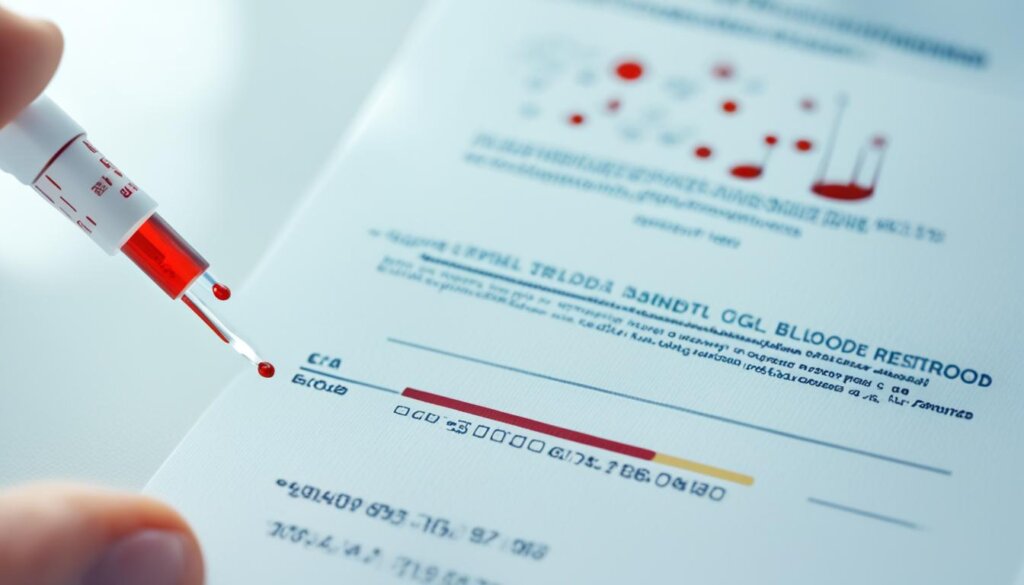
“Knowing your cholesterol numbers and how they change can help you take control of your heart health.”
Dietary Strategies for Cholesterol Control
Changing what you eat is a great way to manage your cholesterol. By eating a cholesterol-lowering diet and healthy eating habits, you can improve your heart health. Let’s look at two important ways to control your cholesterol.
Eat Smart: Focus on Plant-Based Foods
Add more plant-based foods like veggies, fruits, whole grains, beans, and nuts to your meals. These foods are full of fiber and can lower cholesterol. Also, eating foods high in soluble fiber can cut your LDL (bad) cholesterol by up to 10%.
Know Your Fats: Replace Saturated with Unsaturated
Choose unsaturated fats like olive oil, avocados, and fatty fish for your heart. These fats can boost your HDL (good) cholesterol and lower your LDL (bad) cholesterol. But, eat less saturated fats from red meat and full-fat dairy, as they can raise your cholesterol.
By eating this way, you’re taking a big step towards a healthier heart and life.

“Focusing on a plant-based diet and healthy fats can be a game-changer for your cholesterol levels.”
Dietary Recommendation | Guideline |
|---|---|
Saturated fat | Less than 7% of daily calories |
Cholesterol in foods | Less than 200 mg per day |
Soluble fiber | 10 to 25 grams per day |
Plant stanols and sterols | Aim for 2 grams per day |
Consume twice a week from sources like salmon and mackerel | |
Sodium | Limit to no more than 2,300 mg per day |
Alcohol | Men: No more than 2 drinks per day, Women: No more than 1 drink per day |
Remember, making lasting changes to your diet for cholesterol control is key. Focus on plant-based foods and unsaturated fats to help your heart and overall health.
Control Your Cholesterol: Move More, Exercise Regularly
Regular physical activity is a strong way to fight high cholesterol. Doing exercise can increase your HDL (good) cholesterol and decrease your LDL (bad) cholesterol. It’s important to pick activities you like and do them often.
Experts say to mix three types of exercise for the best health: aerobic, strength training, and flexibility exercises. Activities like walking fast, swimming, or biking can lower triglycerides by 30% to 40% and raise HDL by 5 to 8 mg/dL. Strength training can also improve your cholesterol levels.
The American Heart Association says to exercise for at least 30 minutes, five to seven times a week, for the best cholesterol results. Aim for about 200 minutes of exercise each week. Start with shorter workouts and slowly increase the intensity and time as you get fitter.
What matters most is how often and regularly you exercise, not the type. Choose activities you like, such as walking fast, running, swimming, or yoga, and do them often. Making exercise a habit helps control your cholesterol and boosts your heart health.

Regular exercise can help lower blood pressure, improve diabetes, and reduce the risk of heart attack and stroke. Adding both aerobic and strength training to your routine gives the best benefits for your cholesterol and health.
Quit Smoking: Improve Your HDL Cholesterol
Stopping smoking helps boost your HDL (good) cholesterol and lowers heart disease risk. Right after you quit, your blood pressure and heart rate start to go back to normal. As time goes on, your lungs and blood flow get better, which is good for your heart.
Smoking harms your health in many ways, like causing lung cancer, the top cancer killer in the U.S.. About 15% of smokers get COPD, a serious lung disease. But quitting smoking cuts down your risk of these diseases and makes your heart healthier.
- Three months after quitting, your blood flow and lung function get better.
- After a year without smoking, your risk of heart disease is cut in half.
- Quitting smoking helps babies be born healthier.
- Quitting smoking lowers your risk of getting lung cancer.
Stopping smoking is great for your heart. It raises your HDL cholesterol, lowering your risk of heart disease and stroke. This means a healthier, longer life. Start your journey to a smoke-free life and see how it helps your heart.

“Quitting smoking is one of the most important steps you can take to improve your heart health.”
Lose Weight: Reduce Cholesterol and Metabolic Risks
Keeping a healthy weight is key to managing your cholesterol and cutting down heart disease and stroke risks. Extra pounds, even a few, can lead to high cholesterol and metabolic syndrome. Losing weight through eating right and staying active can lower bad cholesterol, raise good cholesterol, and boost metabolic health.
Studies show losing 5-10% of your body weight can improve your cholesterol levels. Eating well and exercising can help you keep this weight off for good. Cutting 500 calories a day can lead to losing 1 pound a week, which helps your cholesterol and metabolic health.
Some diets like keto or Atkins might help you lose weight at first but can raise bad cholesterol levels. But diets full of plant-based foods, like the Mediterranean diet, can lower bad cholesterol and raise good cholesterol. Talking to a health expert can help you find the best diet for losing weight and improving your cholesterol.
Diet | Impact on Cholesterol |
|---|---|
Keto | Increased LDL and total cholesterol |
Atkins | 44% increase in LDL cholesterol over 3 weeks |
Mediterranean | Lowered LDL and total cholesterol, raised HDL cholesterol |
Keeping a healthy weight is key for managing cholesterol and lowering metabolic syndrome risks. By eating well and staying active, you can control your cholesterol, weight, and metabolic health.
“Losing weight can have a significant impact on your cholesterol levels and overall cardiovascular health. Even small changes in your diet and exercise routine can make a big difference.”
Moderate Alcohol Consumption: A Balancing Act
Drinking alcohol and your cholesterol levels need careful balance. Moderate drinking can raise HDL (good) cholesterol and help your heart. But, it’s not a good idea to start drinking just for this. Drinking too much can cause big health issues like high blood pressure, heart failure, and stroke.
It’s best to drink alcohol in small amounts if you drink at all. Drinking a little each day can lower your risk of heart disease. But, drinking a lot or binge drinking can increase your risk.
Binge drinking means having more than 5 drinks in one day for men or more than 4 for women. This can raise your blood pressure right away. Drinking a lot every day can also make you more likely to have high blood pressure.
How alcohol affects cholesterol is different for men and women. Women who drink less than 10 g a day might lower their risk of high blood pressure. But, men who drink 31 to 40 g a day might increase their risk. This shows that gender matters in how alcohol affects your heart health.
So, remember, when it comes to alcohol and cholesterol, be careful. Drink in moderation and stick to heart-healthy habits to keep your cholesterol and heart in good shape.
Medication Adherence: When Lifestyle Changes Aren’t Enough
Even with healthy lifestyle choices like quitting smoking, eating a plant-based diet, and exercising, sometimes you might need more help. This is true if you’re at high risk for heart disease. High cholesterol affects 2 out of 5 Americans. In these cases, doctors might suggest cholesterol-lowering drugs, like statins, to lower your LDL (bad) cholesterol.
It’s key to take your meds as told and keep up with healthy habits. Doing this can cut the risk of heart attack and stroke by 30%. Starting treatment early can also lower your risk of heart problems, even if you didn’t start sooner. But, many patients struggle to stick with their treatment plans.
Work with your healthcare team to find the best cholesterol-lowering drugs. Options include atorvastatin (Lipitor®), rosuvastatin calcium (Crestor®), and simvastatin (Zocor®). Stick to your treatment and keep making healthy choices for your heart. This way, you can manage your cholesterol and lower your heart disease risk.
FAQ
How can lifestyle changes help improve my cholesterol levels?
Changing your diet, exercise, and lifestyle can lower your cholesterol. Eating more plants, exercising, quitting smoking, losing weight, and drinking less alcohol are key steps.
What is the difference between HDL and LDL cholesterol?
HDL (high-density lipoprotein) cholesterol is the “good” kind. It helps remove the “bad” LDL cholesterol from your blood. LDL cholesterol can block arteries, raising your risk of heart attack and stroke.
How often should I have my cholesterol levels checked?
Check your cholesterol with a doctor regularly. This helps you track your levels and manage them. Knowing your numbers helps you keep your heart healthy.
What dietary changes can help lower my cholesterol?
Eat more plant-based foods like veggies, fruits, grains, beans, and nuts. These are high in fiber and can lower cholesterol. Also, choose unsaturated fats from sources like olive oil, avocados, and fatty fish instead of saturated fats.
How does exercise affect cholesterol levels?
Exercise can raise your HDL (good) cholesterol and lower your LDL (bad) cholesterol. Aim for 30 minutes of moderate exercise daily. Mix aerobic and strength training for the best heart health benefits.
How does quitting smoking improve my cholesterol?
Stopping smoking boosts your HDL (good) cholesterol and lowers heart disease risk. Within 20 minutes, your blood pressure and heart rate recover. Over time, your lung function and circulation improve, helping your heart.
How does weight loss affect cholesterol levels?
Extra weight can raise your cholesterol. Losing weight through healthy eating and exercise lowers LDL (bad) cholesterol and raises HDL (good) cholesterol. This reduces your risk of metabolic syndrome and heart disease.
What is the relationship between alcohol and cholesterol?
Drinking alcohol in moderation can raise HDL (good) cholesterol. But, it’s not a strong enough reason to start drinking. Too much alcohol can cause high blood pressure, heart failure, and stroke. Drink alcohol carefully, if you choose to.
When do I need to take cholesterol-lowering medications?
Lifestyle changes may not always be enough for everyone. If you’re at high risk of heart disease, your doctor might prescribe medications like statins. Always take these as directed and keep making healthy choices to help them work best.



